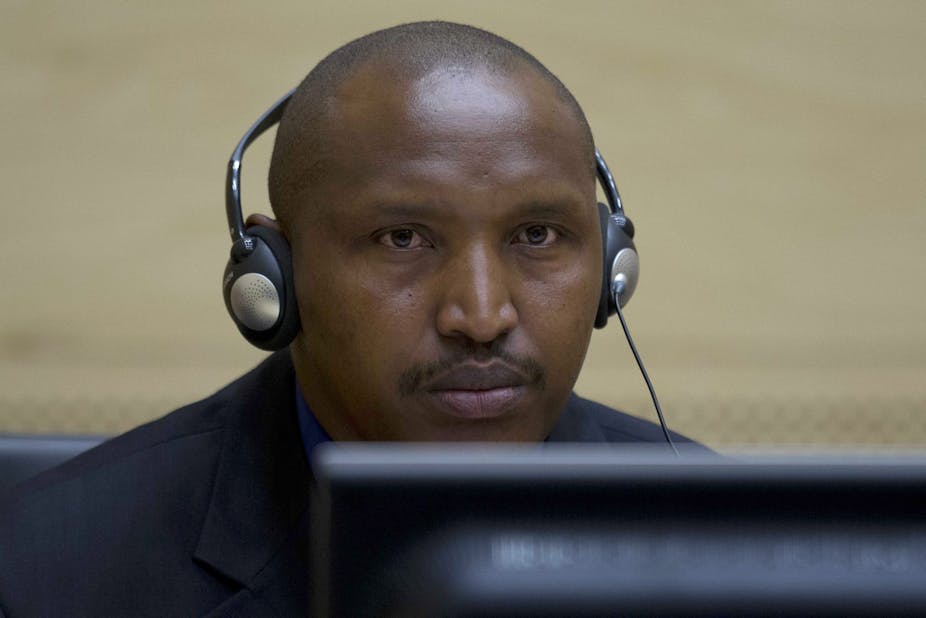On the morning of the 18th of March, Bosco “The Terminator” Ntaganda presented himself at the US Embassy in Kigali, Rwanda, and requested that he be handed over to the International Criminal Court (ICC) in The Hague, where he has been indicted on seven counts of war crimes and three of crimes against humanity. Regarded as one of Africa’s most feared warlords, his somewhat meek surrender was, to say the least, a surprise.
Last year, when Australia’s successful bid for one of five, two year, non-permanent positions on the United Nations Security Council dominated much of the headlines, little to no attention was paid to the fact that in the same round of voting, Rwanda also won a position as a two-year, non permanent member of the Security Council.
How might these two events be related?
In the post-Cold War era, the Great Lakes region of Africa has borne witness to some of the most violent and barbaric conflicts of recent memory. The 1994 Rwandan Genocide is arguably the most infamous of these, but the region has also suffered through two Congo Wars, ongoing conflict in the east of the Democratic Republic of Congo (DRC) and violence in the DRC-Uganda border region.
These wars have been fought by a combination of government forces, militias, criminal gangs and terrorist organisations, the most notorious of these groups including the Joseph Kony led Lord’s Resistance Army (LRA) and the Ntaganda lead M23 rebel group. The conflicts are all characterised by especially barbarous forms of violence, including rape as a weapon of war, child slavery and forced participation in hostilities by children. Finally, these conflicts have all taken place within an environment of unstable government, porous borders and interference from external patrons, most notably ongoing US support for the Tutsi-dominated government of Paul Kagame in Rwanda.

While the Second Congo War officially ended with a peace settlement in 2003, war in the DRC has continued almost unabated, especially in the north and east of the country, where again the violence has been characterised by rape, slavery and the use of child soldiers. But attempts at peace have been thwarted by the increasingly complex nature of this conflict. Fought between troops loyal to the government in Kinshasa and groups with seemingly endlessly changing names and loyalties, Ntaganda has been one of the key rebel figures.
Indicted by the ICC in 2008 for crimes allegedly committed while first leading the Patriotic Forces for the Liberation of Congo and later the National Congress for the Defence of the People, Ntaganda, as leader of M23 (the off-shoot of the defunct National Congress for the Defence of the People) played a leading role in the violent taking of Goma, one of the key cities of Kivu, in November 2012. The events in Goma took place despite the close proximity of the UN peacekeeping mission to the DRC (MONUSCO), which has been heavily criticised for its apparent inability to halt the ongoing violence.
Attempts at establishing ongoing peace have also been hindered by Rwanda’s ongoing involvement in this conflict. According to a 2012 UN inquiry, M23’s attack on Goma was directly supported by more than 1,000 Rwandan Defence Force (RDF) soldiers. While strenuously denied by the Kagame Government, there is mounting evidence to support claims that Rwandan troops continue to back insurgencies against the DRC. The election of Rwanda to the Security Council therefore dealt a blow to those hoping for renewed UN-sponsored attempts at brokering peace in the DRC.
The surrender of Ntaganda and his subsequent transfer to the ICC, however, offers a possible alternative pathway to peace in the region. Detractors of the ICC argue that without the membership of ‘great powers’ such as the United States, Russia and China, or emerging powers, such as India and Indonesia, the Court represents merely a tokenistic attempt to bring violators of genocide, war crimes and crimes against humanity to justice. The same detractors, highlighting the fact that up to now only cases from Africa have been successfully brought before the Court, argue that it is little more than a vehicle for neo-colonialism.
However, despite the absence of great power membership, the mere existence of the ICC, combined with the fact that it has indicted one former head of state (Laurent Gbagbo) and an existing head of state (Omar Al-Bashir), represents a legitimate challenge to traditional power politics and in turn serves to undermine long established norms of sovereign immunity and historically entrenched expectations of impunity. Furthermore, the surrender of Ntaganda offers the hope that the ICC can fulfil its mandate of establishing peace and security through international justice.
Although neither Rwanda or the US are signatories to the Rome Statute, Ntaganda’s extradition to The Hague represents a positive step, for the ICC in particular and international criminal justice more broadly. The expected trial of Ntaganda is not, of course, a silver bullet for an immediate end to hostilities in the DRC. It is hoped, however, that his trial serves simultaneously as a deterrent to further atrocities in the region and a catalyst for a renewed efforts at peace beyond the failures and limitations of the United Nations.

